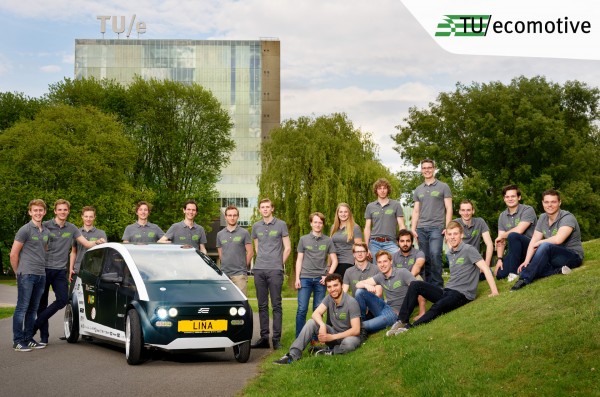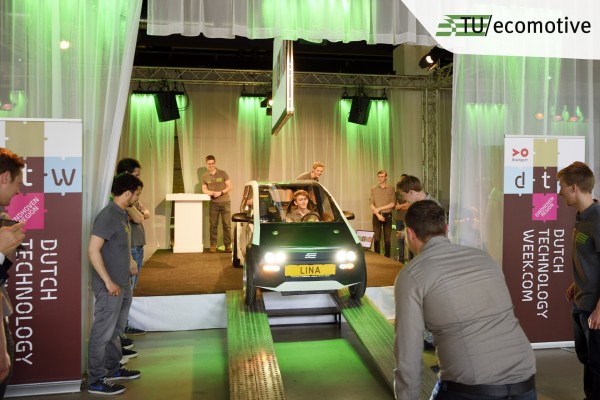Is an electric car made from plants the future of sustainability?
The Lina has been built using bio materials derived from plants.

A group of students in the Netherlands believe they have found the solution to sustainable car manufacturing – an electric vehicle made from bio-based materials.
The EM-04 Lina is a city car designed to seat four people that is the work of students at the Eindhoven University of Technology and their start-up TU/ecomotive.
Their design is made up of components created from what’s known as bio-based composites, as well as bio-based plastics.

These are in essence materials created from plants.
The composite is made from flax, while the bio-plastic is created using sugar beets to offer extra stiffness to the composite in the building process.
Once pieced together the car is powered by battery packs and two DC motors. The result is a car capable of reaching around 50 miles per hour and weighs only 310kg.
The team of students say their creation could be an alternative to the sustainability tactics currently being used by the car industry.

“In recent years, improving efficiency has been the focus in the Automotive industry,” TU-ecomotive said.
“While optimising fuel‐efficiency to reduce emissions is a positive development, it is accompanied with negative side‐effects. Car manufacturers opt for lightweight materials such as aluminium and carbon fibre to create lighter, more efficient cars.
“Processing of these materials however, requires 5 to 6 times more energy than steel, the material which they replace. Consequently, energy that is saved while driving the car is now spent during the production phase. In addition, recyclability of these lightweight materials is lacking significantly compared to steel.”
The car is now appearing at the Shell Eco-marathon in London.





